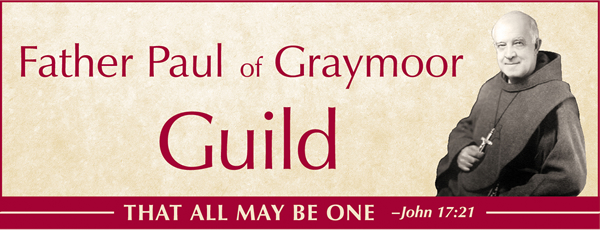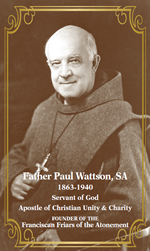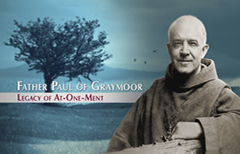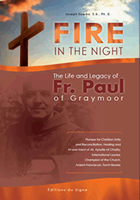The Life and Times of Father Paul of Graymoor
Servant of God Father Paul of Graymoor was born on January 16, 1863, in Millington, Maryland to an Episcopal Minister, Rev. Joseph Wattson and his wife Mary Electa. This was a difficult period in the United States due to the Civil War that was coming to a close. This event left a lasting impression of the young Wattson who in his later years would be seen in his sensitivity to every type of injustice.
Wattson was the son of an Episcopal priest who was himself ordained in 1886. Father Wattson saw the need for both a Franciscan spirituality in the Episcopal Church and a way to both serve the poor and preach the Good News of Jesus Christ. In 1898, together with Lurana White, an Episcopalian sister, they founded the Society of the Atonement within the Episcopal Church, today known as the Franciscan Friars and Sisters of the Atonement.
Fr. Paul had a great desire not only for serving the poor but also for praying and working for the unity of Christians. In 1908 he inaugurated the “Octave of Prayer for Church Unity” that began on the January 18, formerly the feast of the Chair of Peter and concluded on January 25, the feast of the Conversion of St. Paul, which later was recognized and celebrated globally as the Week of Prayer for Christian Unity.
The young religious communities founded in the Episcopalian church encountered great difficulty in preaching reconciliation between the Anglican and Catholic churches. This situation provoked a great spiritual and moral crisis for Fr. Paul, Mother Lurana and their confreres. In 1909, one year after initiating the Church Unity Octave and after much soul searching, he approached Pope Pius X, through the intermediary of the Apostolic Delegate Archbishop to enter into full communion with the Church of Rome. The Society of the Atonement became the first religious community to be received corporately into the Catholic Church since the Reformation.
After Father Paul’s ordination as a Catholic priest in 1910, the Society of the Atonement continued its original mission to pray for Christian unity and to act as an agent of charity to the needy. The heart of Father Paul of Graymoor was a furnace of love for people in both material and spiritual difficulty. In this way, he proved to be a great Franciscan by going out of his way to reach any one in who was in trouble. Already as an Anglican Community, in 1904, Wattson founded the Union That Nothing Be Lost (UNBL) which became the channel through which his missionary spirit was able to respond to the material needs of the time.
Father Paul of Graymoor took a vow not to touch money, a vow he observed until his death in 1940. It was not unusual to see him begging in the subway in New York, then asking a kind soul to place the token in the subway so he could return home.
In the early 1900’s Father Paul opened the Friary to these “knights of the road,” as he used to call those men homeless and jobless. This work of welcoming the stranger, the poor, the homeless in the home of the Friars, was the beginning of what came to be known as “St. Christopher’s Inn.” From the foundation until today, St. Christopher’s Inn, continues to welcome thousands of men in difficulty from substance abuse and alienation. Perhaps the greatest gift that the Inn offers to these men, consists in welcoming and listening to them and understanding them. For over a century, the prophetic work of Father Paul of Graymoor continues to realize the Gospel mandate that Pope Francis today proposes as the charitable mission of the Church and go to the margins.
The missionary zeal of Father Paul overflowed into his many actions, as is evidenced by his efforts to launch and support both the Catholic Near East Welfare Association (CNEWA) and the Catholic Medical Mission Board (CMMB)
Cardinal Timothy Dolan of New York has said of the contribution of Father Paul not only to the local Church of New York, but also to the universal Church: “The Holy Spirit is evident in the tireless efforts of Father Paul of Graymoor towards the unity of Christians, the support of all missionary activity and the loving care for the needy, work that continues today in St. Christopher’s Inn.“





